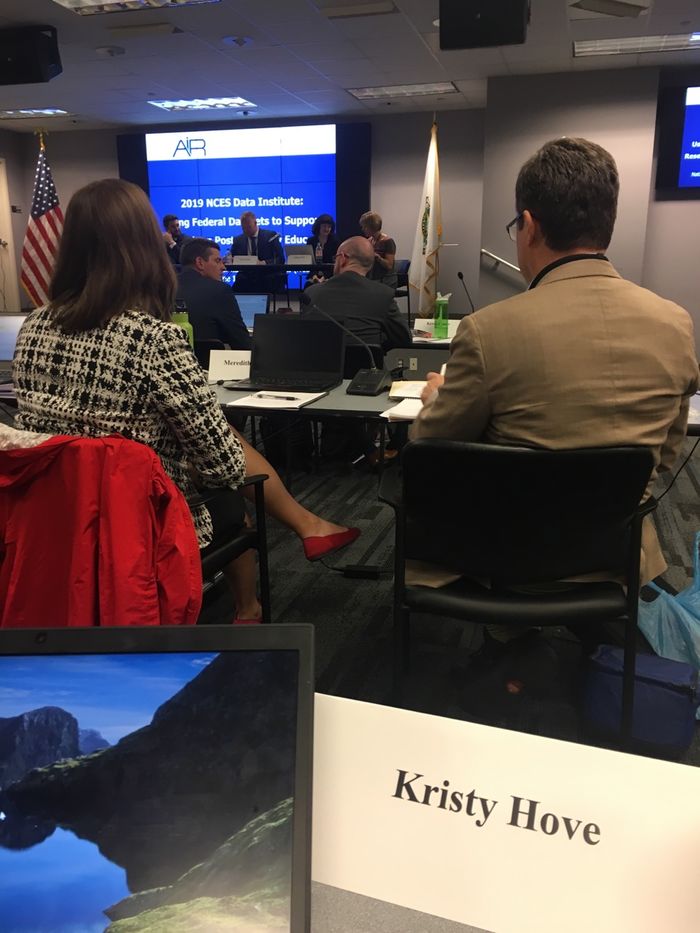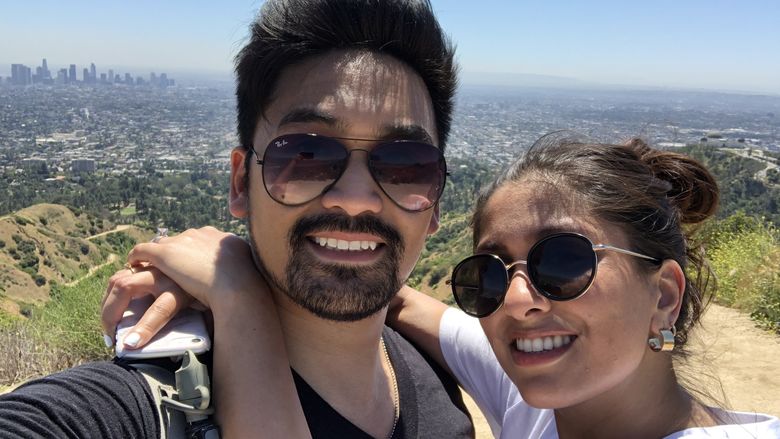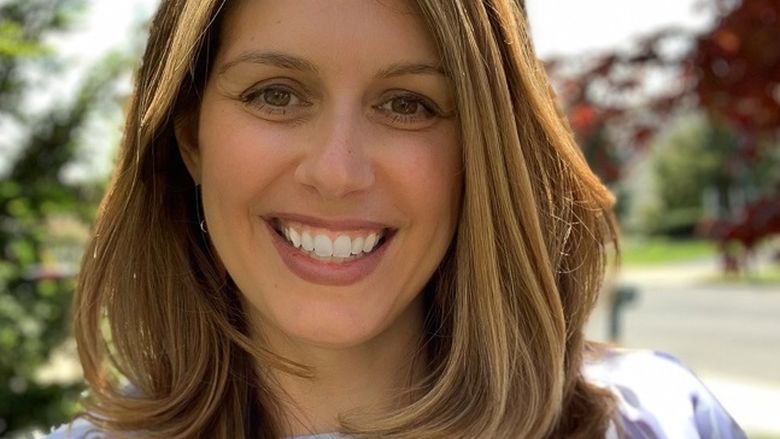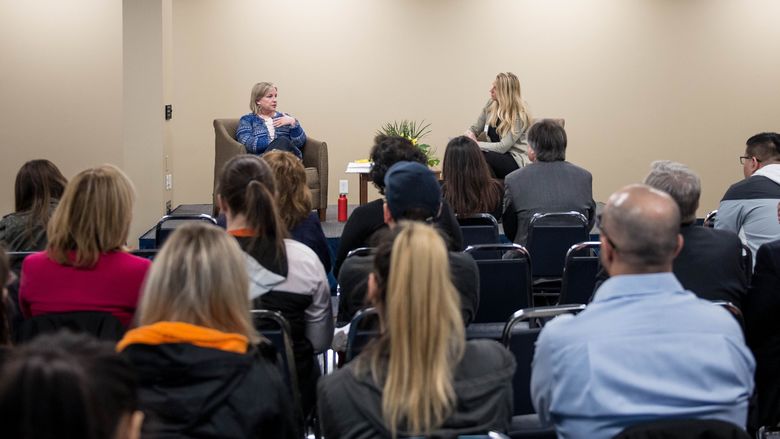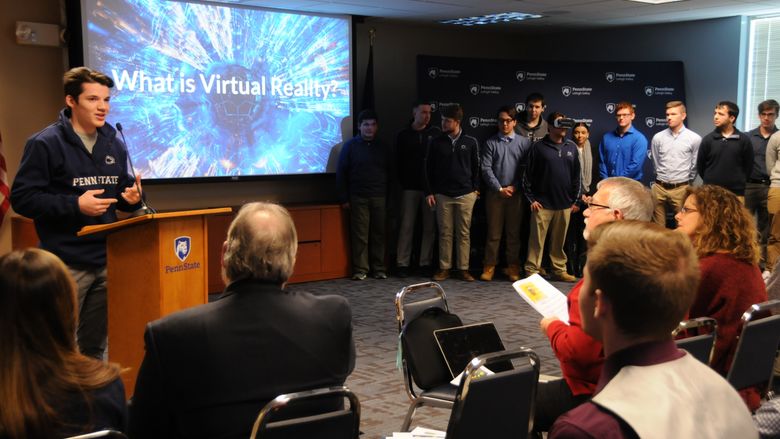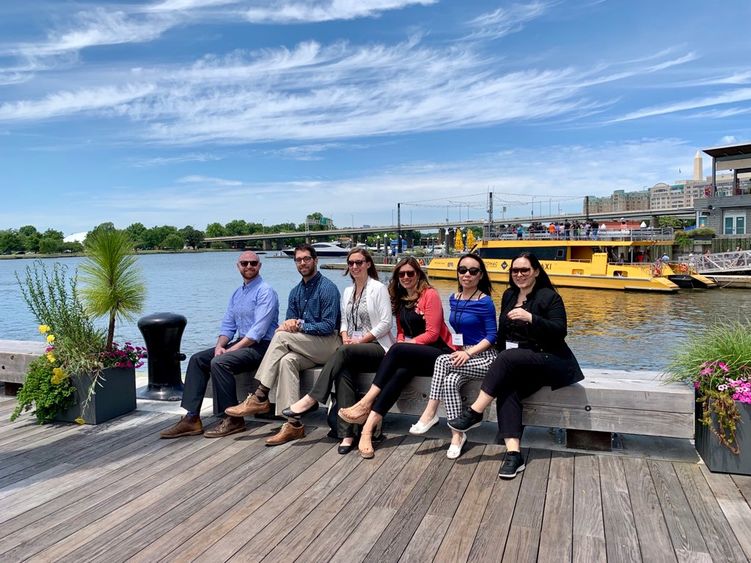
Research Group #6 posed at The Wharf in Washington, D.C. The group was part of the 2019 Cohort of the National Center for Education Statistics (NCES) Data Institute offered through the U.S. Department of Education and the Association for Institutional Research.
Kristy Hove currently serves as the institutional planner for Penn State Lehigh Valley, a role she has held for 10 years following several years spent in Continuing Education. Her typical days are filled with strategy sessions, data-pulling, report writing and interacting with administration, faculty and staff. Her most recent educational adventure was being selected as a member of the 2019 National Council for Education Statistics (NCES) Data Institute Cohort: Using Federal Datasets to Support Research on Postsecondary Education. Hove and her research team analyzed the impacts of postsecondary educational attainment on income mobility. They joined their colleagues from across the country to present their findings to NCES and the Association of Institutional Research from June 10-12, in Washington, D.C. We asked Hove some questions about her summer experiences.
- What was the highlight of your summer so far?
"By far, the highlight so far has been my participation in the 2019 Cohort of the National Center for Education Statistics (NCES) Data Institute offered through the U.S. Department of Education and the Association for Institutional Research. The Institute consisted of a six-week online course, a 15-week research capstone project with a group of colleagues utilizing NCES federal datasets, and a three-day face-to-face meeting in Washington, D.C., in June."
- How did you land this great opportunity?
"I applied to the Institute last summer, citing my background and research interests, and heard back in November that I was one of 36 higher education professionals from across the U.S. to be selected from a pool of over 130 applicants."
- What did it mean to be a part of this research team?
"I was a member of a six-person research team with the assigned topic of Socioeconomic Status. My group chose to use to the Educational Longitudinal Study Dataset (ELS: 2002 sophomores) to conduct research on students’ pathways through postsecondary education/employment and their corresponding income levels. We identified 31 variables of interest and used descriptive statistics and logistic regression methods to create a series of models. Our final project resulted in an Executive Summary Paper titled "Socioeconomic Status Related to Employment Income of a Millennial Cohort." Throughout the face-to-face meetings in D.C., we delivered presentations about our data and findings to Department of Education staff, AIR representatives and fellow research groups. We are looking to submit our findings to an educational journal and a national conference for greater dissemination."
- What were your three favorite things from this experience?
- "Interacting and learning from people who have a love of and respect for the power of educational data in making a difference in people’s lives."
- "Producing a final product with a group of national colleagues who are now friends, but who were strangers just a few months ago."
- "Talking about policy implications while sitting in a conference room at the U.S Department of Education."
- What did you learn from it?
"The objectives of the Institute were three-fold:
- Stimulate interest in and use of NCES datasets to address current and future research questions in higher education;
- Provide instruction for the use of NCES datasets to conduct analyses; and
- Enhance understanding of methodological and technological issues relevant to NCES data collections."
- What was it like being in D.C.?
"I love D.C. I lived in the city for a semester while I interned at The White House in the Director’s Office of Presidential Correspondence and completed my studies in political science. It is always nice to get back and immerse myself in all things political and educational."
Dennille Schuler
Public Relations Specialist
Penn State Lehigh Valley
